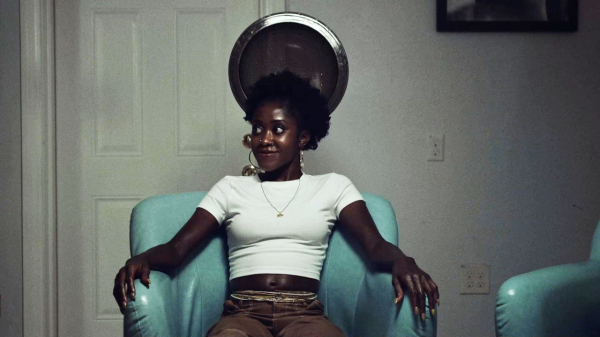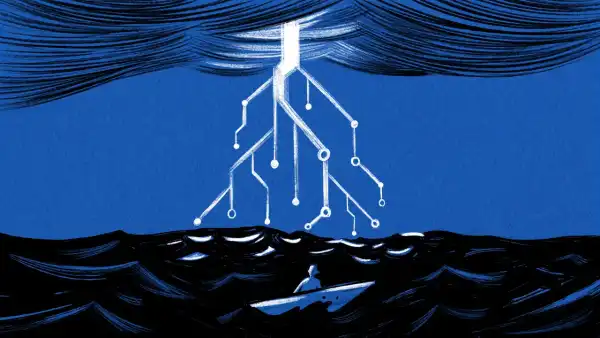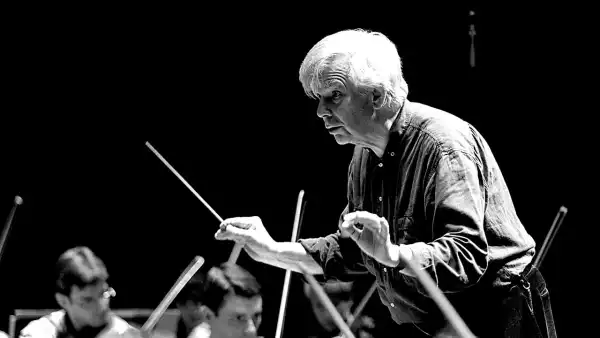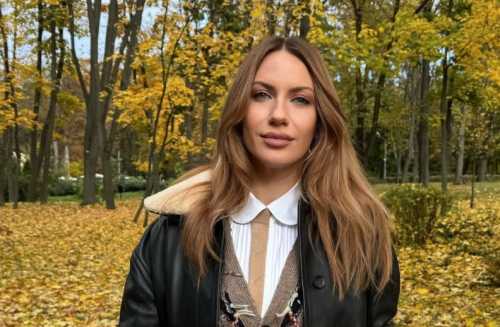
Kasumu’s documentary focusses on the traditions of Black hair care—and on the artist and entrepreneur Anastasia Ebel.
Natural-hair care is both an art and a science, organized by a rubric of curl patterns. But understanding Black hair requires a deeper understanding than that of the waves, curls, coils, and kinks sprouting from a person’s scalp. Anastasia Ebel, the owner of BabyBangz salon in New Orleans, which specializes in natural-hair care, says that, with her clients, “You have to have Black-ass conversations in order for someone to trust you in their hair.” From a young age, many Black girls are persuaded to chemically “relax” their curls until they’re bone-straight. Ebel responds to the societal pressure to conform to white standards of beauty by rebelling against them.
“BABYBANGZ,” a new documentary short directed by Juliana Kasumu, focusses on the traditions of Black hair care and Ebel’s story as an artist, entrepreneur, and a community educator. Kasumu’s natural-hair journey is a familiar one. Her story began in London, when she was ten years old and her auntie applied her first kiddie relaxer. “My journey was one of believing, at first, that there wasn’t much versatility in my hair,” she said. “But now when I think about it, when I was ‘relaxed,’ there wasn’t much I could do.”
The New Yorker Documentary
View the latest or submit your own film.

Kasumu and I spoke over Zoom; she nibbled on fresh-cut watermelon in her London flat while she told me her own hair story. She wore her hair straight until her first year in university. She stumbled upon Ebel’s salon when she was studying for her M.F.A. in studio art at Tulane. After graduating, Kasumu stayed in New Orleans, and found comfort in Ebel’s approach to hair—one that’s firmly rooted in Black history and education. Inside BabyBangz, Kasumu, who once built a visual-art installation about Yoruba hair traditions, felt immediately at home.
For the Black community, the connection to one’s hair is metaphysical. Sometimes wearing natural hair is also an exercise in patience; there are environmental factors out of one’s control, so people turn to hair stylist and barbers. Ebel’s clients enter Babybangz stressed out by the New Orleans humidity and tired of code-switching. A trip to the hair salon offers a reprieve from chronic societal pressures. The complexity of natural hair also allows it to be a canvas for many different styles. When a Black woman decides she’s tired of her relaxer, usually the logical step is to get a “big chop,” an event with significance that’s more than cosmetic.
“I’ve probably done thousands of big chops. I give everybody the same ring-around. Everybody has a genuine experience, but there’s levels of psychology I have to hit when I’m doing a big chop,” Ebel says in the film, while flat-twisting a client’s hair. “I read their energy, their response, their body language, and, on the Web site, it says, ‘Come emotionally prepared and spiritually prepared for this,’ ” she noted of the mental gymnastics some clients do before deciding to cut their hair once and for all.
Kasumu captured parts of her film with a 16mm-Bolex camera, which gives the footage an ethereal quality. Inside the salon, women sit in a sister circle and politick with each other; the atmosphere is cozy, and the light reflects off the women’s cheekbones. Outside the salon, the mood is considerably brighter. Ebel narrates her own story with her baby down in a bayou. Kasumu evokes New Orleans with archival footage that she captured during Mardi Gras in 2020 and tranquil scenes that show Ebel and her team’s completed hair masterpieces—hairdressers and clients standing in water in front of a backdrop of Cypress trees and Spanish moss.
Kasumu packed up and left New Orleans the day after filming, and her final product is a love letter both to New Orleans Ebel’s community and to natural-hair care. On the Zoom screen, she harkened a young Diana Ross; Ebel wore her hair voluminous with bangs that nearly covered her eyes and told me about where she’s currently at on her own natural-hair journey. “I’m very much of, like, a ‘try it all, do it all’ kind of person. Now I love a good unit, love a good braid. Just all of it. I locked my hair and then I was bored. But now I want to go back.” ♦
Sourse: newyorker.com






